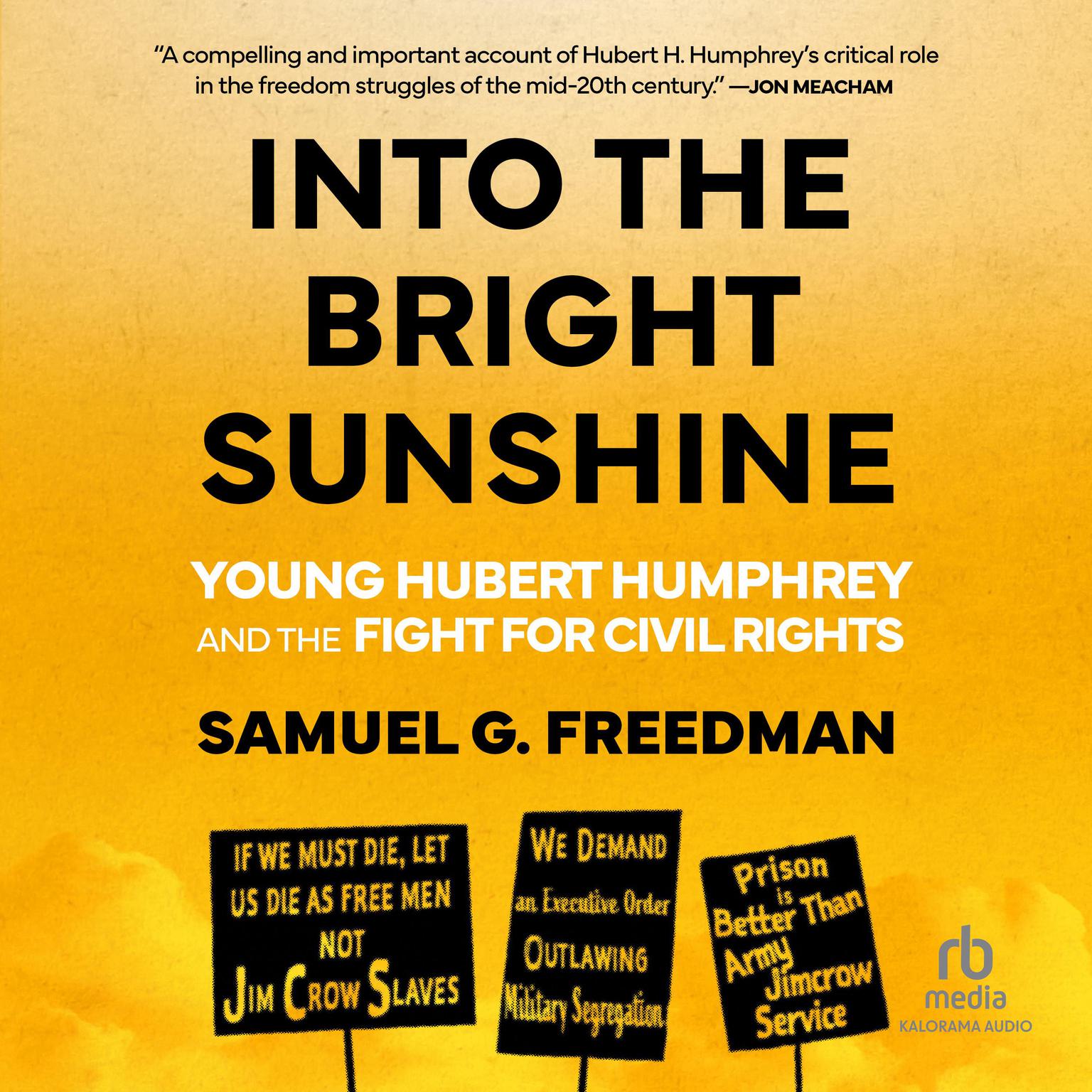 Play Audiobook Sample
Play Audiobook Sample
Into the Bright Sunshine: Young Hubert Humphrey and the Fight for Civil Rights Audiobook
 Play Audiobook Sample
Play Audiobook Sample
Quick Stats About this Audiobook
Total Audiobook Chapters:
Longest Chapter Length:
Shortest Chapter Length:
Average Chapter Length:
Audiobooks by this Author:
Publisher Description
During one sweltering week in July 1948, the Democratic Party gathered in Philadelphia for its national convention. The most pressing and controversial issue facing the delegates was not whom to nominate for president—the incumbent, Harry Truman, was the presumptive candidate—but whether the Democrats would finally embrace the cause of civil rights and embed it in their official platform.
On the convention's final day, Hubert Humphrey, the relatively obscure mayor of the midsized city of Minneapolis, ascended the podium. Defying Truman's own desire to occupy the middle ground, Humphrey urged the delegates to "get out of the shadow of state's rights and walk forthrightly into the bright sunshine of human rights." Humphrey's speech put everything on the line, rhetorically and politically, to move the party, and the country, forward.
To the surprise of many, including Humphrey himself, the delegates voted to adopt a meaningful civil-rights plank. With no choice but to run on it, Truman seized the opportunity it offered, desegregating the armed forces and in November upsetting the frontrunner Thomas Dewey, a victory due in part to an unprecedented surge of Black voters. The outcome of that week in July 1948—which marks its seventy-fifth anniversary as this book is published—shapes American politics to this day.
Download and start listening now!
Into the Bright Sunshine Listener Reviews
Be the first to write a review about this audiobook!


